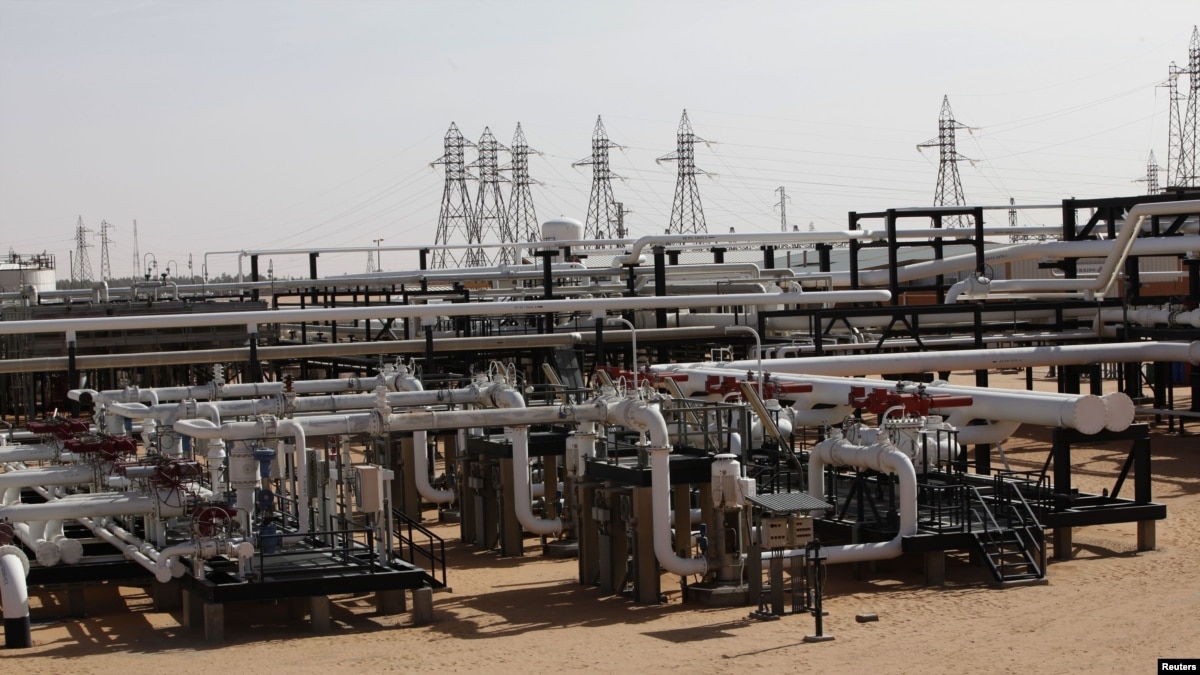
A number of workers at Libya's largest oilfield, El Sharara, and two other facilities are demanding a salary increase by two-thirds at a time when the OPEC country's oil output is surging.
The comments are the first sign of dissent at the 315,000-barrels-per-day (bpd) field in southern Libya since it reopened this month. State guards and tribesmen had closed El Sharara in December in an apparently successful attempt to clinch salary payments and development funds.
Workers at the National Oil Corporation, like other public-sector employees, have suffered because of a quasi-devaluation of the Libyan dinar, which has fueled inflation as Libya imports most of its food and other needs.
Some 50 to 60 workers at El Sharara, wearing blue jumpsuits, appeared in a video demanding a salary hike of 67 percent, a figure that the government decided in 2013. That planned pay rise was never implemented. Soon after the government settled on the amount, public finances took a hit from a series of oilfield blockades by armed groups and protesters.
Workers at two other fields also posted pictures that show them demanding a pay increase, calling their movement "Sabaa Wa Steen", the Arabic word for 67.
There has been no impact on oil production.
The El Sharara workers also complained about what they said was a three-month delay in salary payments and demanded the release of colleagues, including a foreigner, who were kidnapped by gunmen in July.
El Sharara, operated by NOC and foreign partners, has been pumping oil intermittently due to blockades mostly by armed groups and other incidents.
It is now controlled by the same state guards who had closed it in December, working with the Libyan National Army, which rivals the internationally recognized government based in Tripoli and took control of the south in a military campaign.
"We don't want anything except a salary increase. We work in the desert and are trying to increase production at El Sharara to its normal level," an engineer from the field told Reuters, asking not to be identified.
State oil firm NOC expressed support for the salary demand, saying its omission from the government's 2019 budget had come as a disappointment.
"The oil workers continue to perform their national duty, serving the interests of all Libyans in the most difficult circumstances," NOC Chairman Mustafa Sanalla said in a statement.
Libya's oil output has risen to 1.2 million bpd after the reopening of El Sharara, the Tripoli-based finance minister said last week. This is nearly the highest level since 2013. Whenever output hits 1 million bpd, salary demands tend to go up as NOC workers compare their earnings with those of employees at foreign firms who are paid in hard currency.
Most state institutions in Libya, particularly oil sites, have been subjected to repeated attacks and sabotage since the overthrow of Muammar Gadhafi in a NATO-backed uprising in 2011.
In June 2017, El Sharara workers went on strike over a lack of medical treatment for a colleague who died in a swimming pool accident.
No comments:
Post a Comment